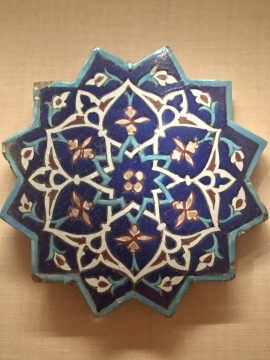by Shadab Zeest Hashmi
 The month of Ramadan is at once a time of respite from the external— when one’s focus shifts from worldly affairs to the spiritual— and a time to deepen one’s sense of compassion and fellow-feeling via the rigors of daily fasting, prayer, reflection and generous giving. It is a time to break free from day to day concerns and to pay attention to one’s lifelong inner journey, whether it is through revitalizing the connection with the Divine or investing in human relations: personal, communal, and global.
The month of Ramadan is at once a time of respite from the external— when one’s focus shifts from worldly affairs to the spiritual— and a time to deepen one’s sense of compassion and fellow-feeling via the rigors of daily fasting, prayer, reflection and generous giving. It is a time to break free from day to day concerns and to pay attention to one’s lifelong inner journey, whether it is through revitalizing the connection with the Divine or investing in human relations: personal, communal, and global.
In the face of unprecedented grief, anxiety and uncertainty brought on by the COVID-19 pandemic, this Ramadan has been a rare opportunity for reflection. Where social distancing has taken away the comfort of breaking the fast in communal settings and sharing the challenge and peace of the sacred season with family and friends, it has shown a hitherto unknown way to experience this sacred time.
On a typical Ramadan day, I would wake up to make the pre-dawn meal, and get the family ready for the usual morning routine— school and work, balancing the day between Ramadan demands and the family’s routine demands such as work deadlines, tests, after-school activities and work-related social commitments that required us to participate in a state of fasting, feeling exhausted and isolated. Being able to share with others, often only on weekends, the singular sense of contentment that comes from Ramadan-fasting always makes the challenges feel worthwhile.
This Ramadan, we are cut off from loved ones and friends; we cannot invite anyone or visit the mosque for special prayers and have festive Iftar meals together. While the daylong hunger and thirst of every Ramadan is a bodily reminder of those among us who struggle with basic needs, this year I’m also reminded of those who live under lockdowns imposed by military occupations. The idea of a lockdown suddenly feels much more immediate, more oppressive. How does one bear curfews that go on for months and months— the uncertainty, the impossibility of accessing ordinary necessities such as food and medicine, of gathering for prayers, weddings and funerals?
We, on the other hand, are finding that Ramadan in isolation gives us a little extra time and the flexibility of schedule, which is turning out to ease the fifteen-hour fast. The relatively relaxed atmosphere created by less rigid schedules, is freeing up time for more meditation and more time for conversation with each other, more time to ponder the new reality and its human toll, including the effects on our psyche and spirit.
When my college kids are away, I worry about whether they’re able to fix themselves the pre-dawn Sehri meal or whether they’re eating healthy and keeping themselves hydrated. But this year my kids are home— doing their classes online and fasting together. There is a special joy in asking one of them to help me mix the pakora batter or to fry egg rolls for Iftar. By late afternoon every day, I wrap up my writing work and begin preparing the Iftar. If there are no zoom meetings going on near the kitchen, I play my favorite qawwalis, and sing as I cook. Spring has lavished our garden with hibiscuses, roses and jasmines, and the new normal has lavished time to notice these vernal gifts. It is a joy to use fresh mint from the yard for sweet- and salty mint lassi or make lemonade from our Tuscan lemons. For once I have more stamina for the copious amounts of cooking that goes into creating a festive Ramadan atmosphere.
Our deadlines and work stress are very much present, but we are able to cope better than before. Fasting in Ramadan is a reminder of how resilient our bodies are and how much there is for the spirit to gain from this yearly exercise. Ramadan in lockdown has opened up new channels of conversation about what matters the most to us as individuals and as a family. There is a special bond between those who attempt to overcome hunger and thirst together and commit to strengthening the character by forming healthier habits. I cherish this bond as a mother, and find myself feeling nostalgic about such heartwarming moments with family in my childhood.
The end of Ramadan is marked by the festival of Eid which will be yet another new experience in lockdown. As we approach Eid day, I am decorating the house, hanging baskets of flowers in the patio, fixing garden lights, and putting together ingredients to cook Eid dishes. The usual Eid congregation at the San Diego convention center is cancelled. We will spend Eid at home, enjoying the garden and each other’s company.
